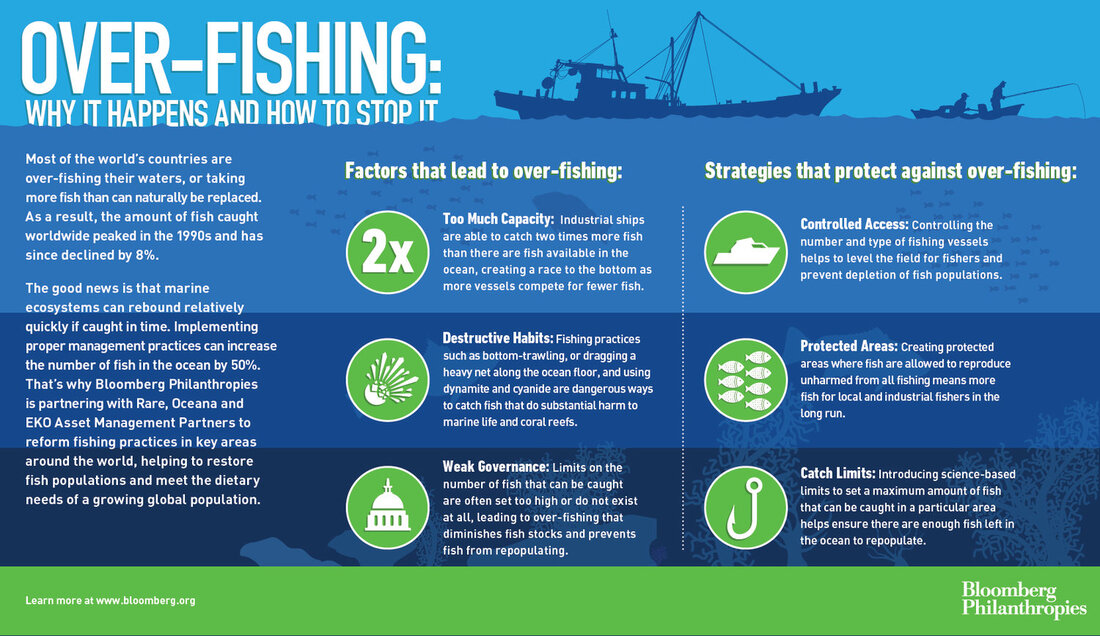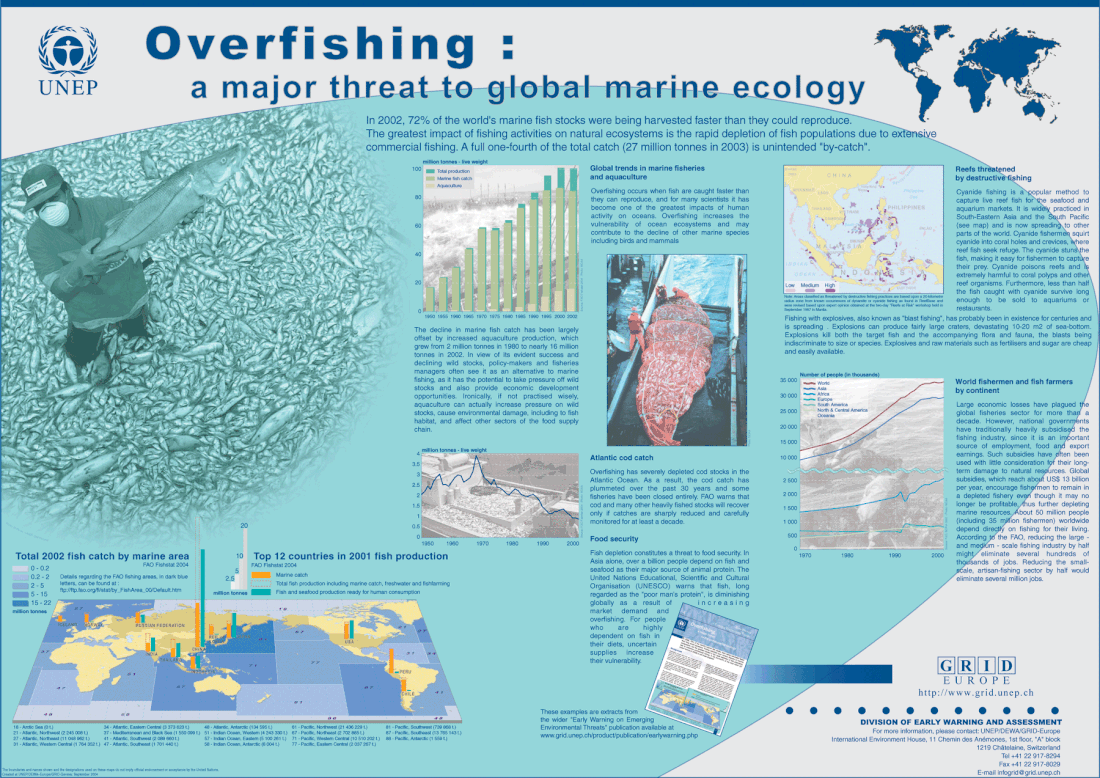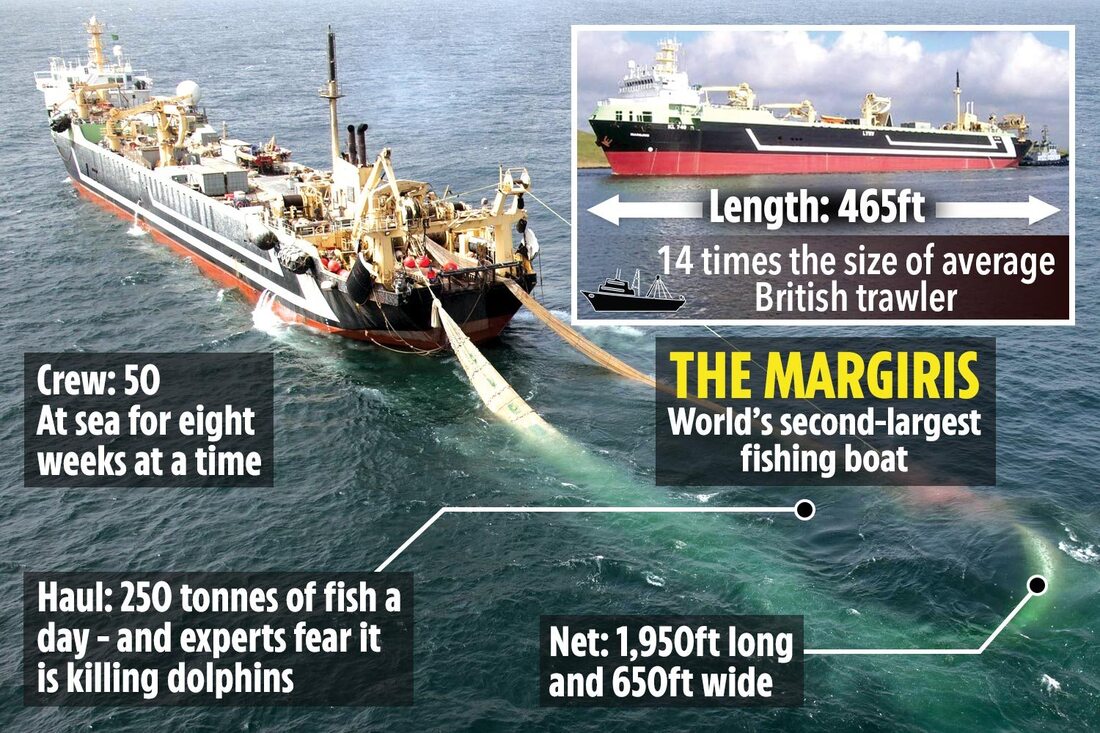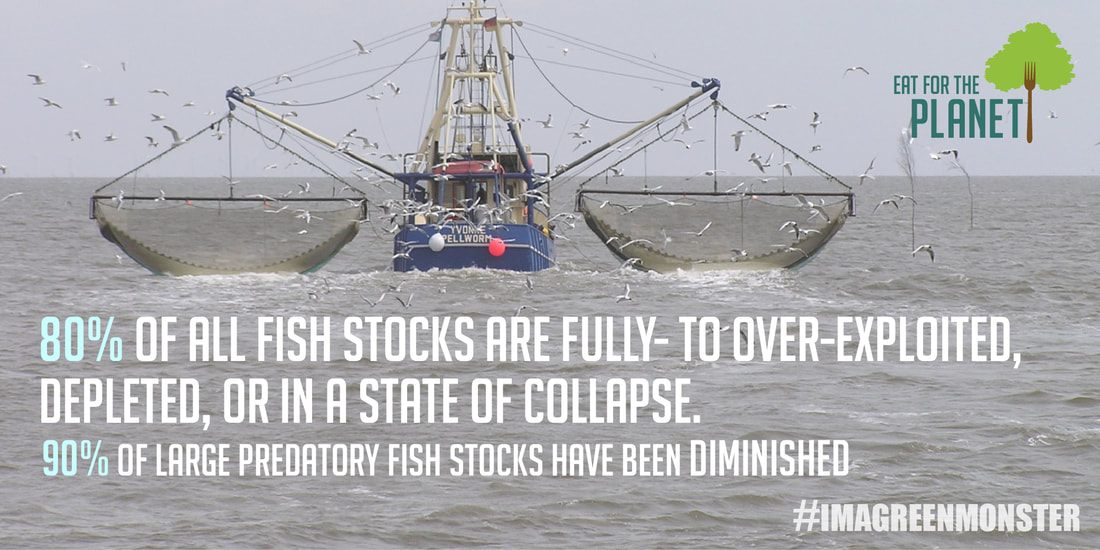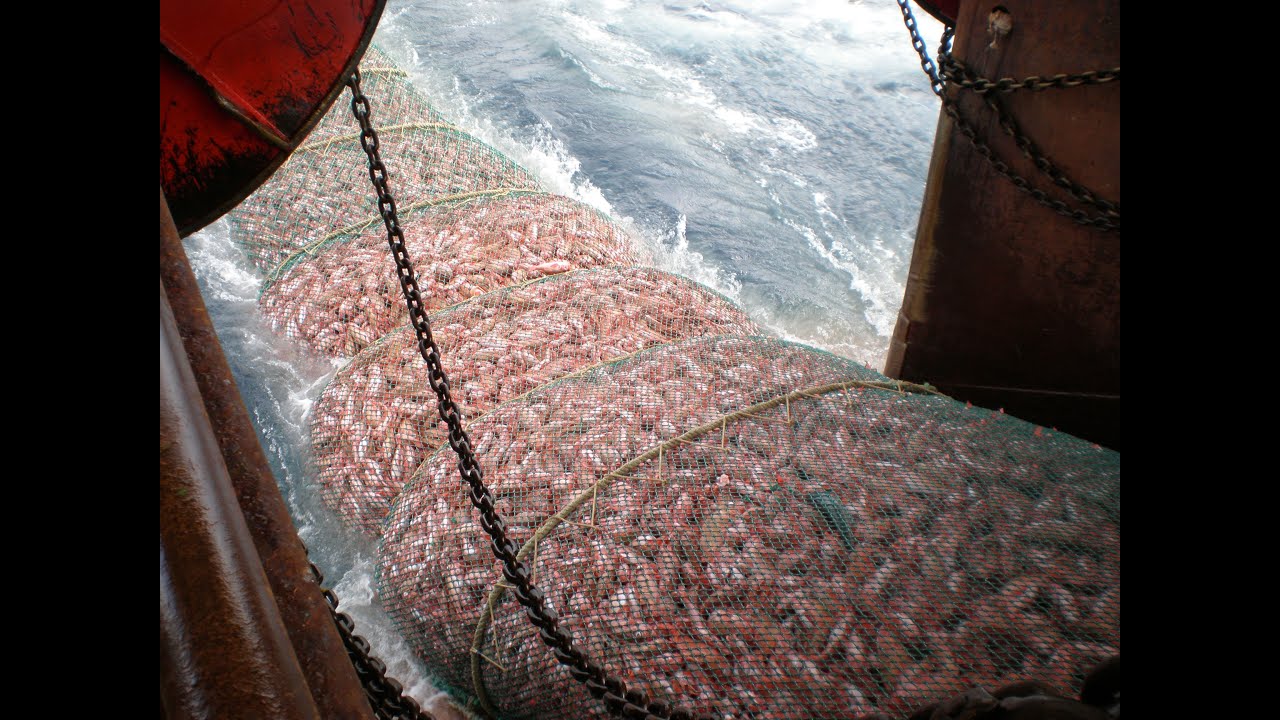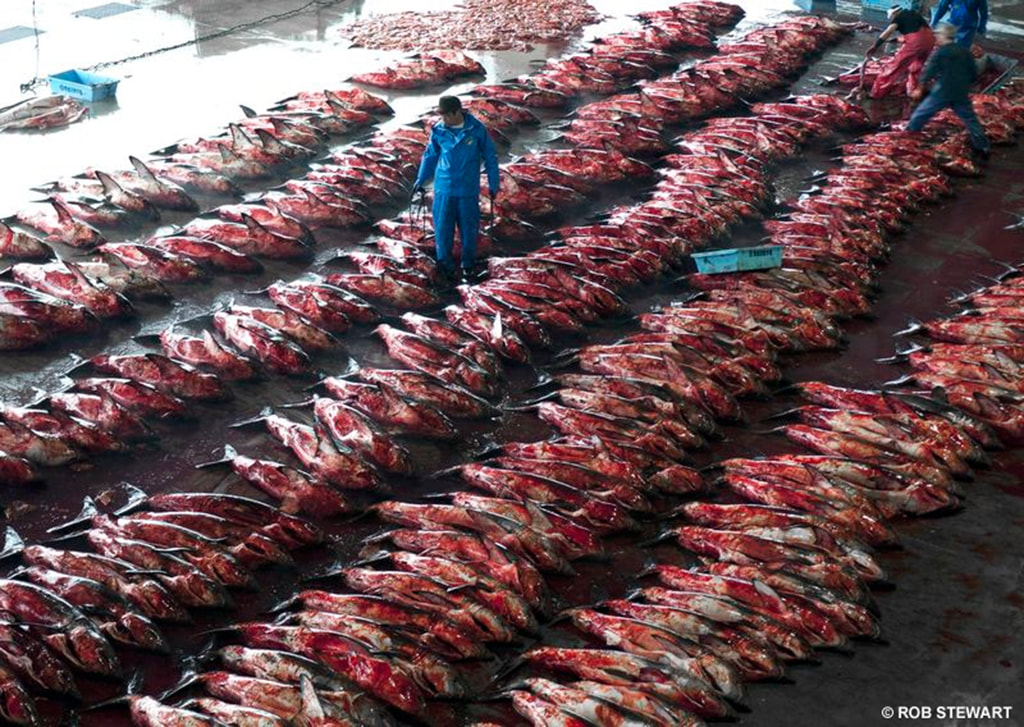23.07.2021
Overfishing & Destructive Fishing
Currently, less than two percent of our oceans are set aside as marine reserves, making it all too easy to exploit their resources. Overfishing and destructive, wasteful fishing practices are threatening the health of our oceans and food security for communities everywhere. Overfishing is threatening food security for hundreds of millions of people and destroying ocean ecosystems worldwideFor example, bottom trawling—in which giant nets are run along the sea floor picking up or crushing whatever is in their path—is particularly damaging to fragile coral and sponge habitats. Longlining—a technique that consists of baiting thousands of hooks along miles-long fishing lines—snag thousands of creatures that are typically thrown back into the water dead or dying. These “unwanted” species, called bycatch, often include turtles, albatross, sharks, manta rays, and even dolphins, many of which are endangered. Every year, commercial fishing kills as many as 300,000 whales, dolphins, and porpoises and about 100 million sharks. The seafloor is a very stable system. It is the calmest part of the sea, where currents, temperature, and other natural conditions remain relatively undisturbed. However, when heavy nets are dragged along the sea floor, they stir up sediments as well as the water, resulting in a destabilization of the sea floor. Bottom trawling requires sophisticated technology and is highly profitable. Therefore, large companies compete with each other to gain control of area of seas that are rich in fish. Often, the winner ensures that no other competitors can fish these areas in order to maximize profits. Local fishing businesses with traditional fishing equipment and small boats cannot compete with large fishing companies, and are therefore squeezed out and suffer economic losses. Credit: attn:
Poverty deprives people of adequate education, health care and of life's most basic necessities- safe living conditions (including clean air and clean drinking water) and an adequate food supply. The developed (industrialized) countries today account for roughly 20 percent of the world's population but control about 80 percent of the world's wealth.
Poverty and pollution seem to operate in a vicious cycle that, so far, has been hard to break. Even in the developed nations, the gap between the rich and the poor is evident in their respective social and environmental conditions.
Poverty and pollution seem to operate in a vicious cycle that, so far, has been hard to break. Even in the developed nations, the gap between the rich and the poor is evident in their respective social and environmental conditions.

